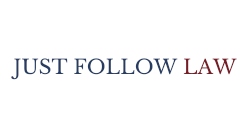“Who taught you how to breathe?”
This was the first question we were asked on our very first day at SUSS Law bootcamp. Unsurprisingly, no one could really answer it. It made me stop to think. Clearly, breathing is something we do so unconsciously that we do not actually think about it at all (unless if you are in a meditation class!).
Here’s the catch: there is actually a technique to breathing. And if you know the right technique, you will probably find yourself being able to better manage your breaths, when running or swimming or even talking!
The bootcamp was truly SUSS ‘breaking us in’ – a bunch of working adults, somewhat idealistic (‘I want to give voice to the voiceless’) and somewhat arrogant (‘I am a competent working professional so school cannot be that tough’). After a hectic run of four Saturdays, from 9am to 630pm, with two 500-word assignments to be submitted each time, I came out of it humbled.
First, I had to unlearn a number of things. The tendency to jump to conclusions, the preconceived notions held and the assumptions made. Perhaps it is because we are all products of the society we live in – fast-paced, efficient, results-oriented – I tend to arrive at a conclusion on an issue without taking the time to appreciate all of the information I have received. The same applies for preconceived notions and assumptions. Over time, biases accumulate due to experiences that reinforce them. They become the unconscious filters I use to assess any situation or issue. I learnt that they inhibit my ability to think critically and logically. So I will need to consciously unlearn these ingrained cognitive impulses.
Then I needed to relearn. How to write clearly and logically. I had always thought I wrote fairly well. But there is writing and there is legal writing. Just because I could write decently did not mean I would be able to write well in the context of a legal case analysis. I found that clarity and logic needed to be expressed from the perspective of the reader. What I had thought logical and clear in my head was not actually so as someone (the one who marks my assignment) reads it for the first time and does not think the way I do.
Finally, all the unlearning and relearning need to be applied. At SUSS, we are not learning to be law academics but practitioners. We had to demonstrate that we were able to apply what we learnt during the bootcamp in the graded assignments we had to submit. My personal performance was a rude shock. As our professor puts it, ‘If you have been scolding your child for not getting 90 marks, please do not show him your marks!’. All illusion of attaining first class honours were quickly stemmed.
So for all of you who have patiently read this rambling post and may also be experiencing some of the challenges I have shared, here’s food for thought: Unlearn your deep-rooted thought habits, relearn the fundamentals of good writing, critical thinking and analysis, apply it to how you would approach the learning in your course modules and repeat until you get your 3.5 CGPA. See you at the bar.


The process of unlearning and relearning a skill is more difficult than learning it afresh.
Once a typical habit sets in, takes quite a bit of effort to change.
Agree. It is much harder. Essentially it is a rewiring of cognitive responses. And for adult learners like us, many responses are already ‘programmed’. Maybe it should be called a re-boot! And an upgrade of operating systems! 😛